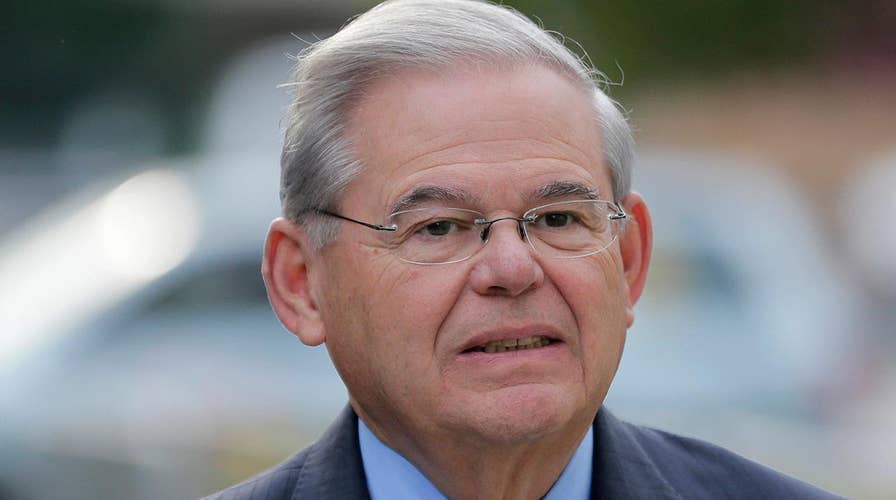Judge refuses to toss Sen. Menendez corruption charges
Prosecutors accuse Democratic senator from New Jersey of taking bribes, gifts from wealthy donor; David Lee Miller reports from Newark.
The federal judge presiding over the Sen. Bob Menendez corruption trial dealt the New Jersey Democrat a serious setback Monday, refusing to dismiss any of the charges in the case.
Newark Federal Court Judge William Walls' decision denying a defense motion to throw out the bribery charges ensures that the case will be given to a jury to decide the lawmaker’s fate.
After the decision, Menendez said only, "look forward to putting out all of our defense" as he left the courthouse following the trial's adjournment for the day.
Walls ruled against defense arguments that the charges should be dropped because they didn't meet a narrower definition of bribery under a 2016 U.S. Supreme Court ruling that reversed the conviction of Republican former Virginia Gov. Bob McDonnel on corruption charges.
Menendez is charged with accepting free flights on a private jet and other gifts from wealthy Florida doctor Salomon Melgen in exchange for pressuring government officials to take actions favorable to the friend's business interests
“This court concludes that a rational jury could deduce that the defendants entered into a quid pro quo agreement,” Walls said after hearing last-minute arguments from both sides. “The jury is at liberty to accept or reject."
Walls ruled Monday after federal prosecutors rested their case last week. The defense will now begin presenting its case.
Menendez, 63, has pleaded not guilty.
The most serious charge Menendez and Melgen face, honest services fraud, is punishable by up to 20 years in prison.
Melgen has also pleaded not guilty.
The two men say the gifts were a result of their longtime friendship.
Last week, the judge surprised some when he set aside what was expected to be the trial's central issue: whether Menendez's meetings and other dealings with government officials could be considered "official acts" under the McDonnell ruling's new definition.
Instead, the judge focused on the "stream of benefits" theory, which in the past held that a bribe doesn't have to be made with the intent to prompt a specific official action.
Menendez's and Melgen's attorneys argued that language in the McDonnell decision requires that an alleged bribe must be given in exchange for an official taking an action — or agreeing to take action — on a specific "question, cause, suit, proceeding or controversy."
Menendez attorney Abbe Lowell argued the prosecution used a "mix-and-match" strategy to pair up Melgen's gifts with actions Menendez took over the years, without establishing direct connections.
"They are one, two years apart," he said. "Sometimes the bribe is allegedly for something three months before."
In response, Justice Department attorney Peter Koski argued that the Medicare dispute and the port contract were the specific matters at issue and that a public official doesn't have to specify how he will perform his end of the bargain.
The Associated Press contributed to this report.













































